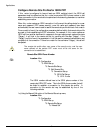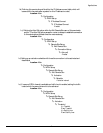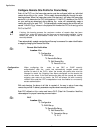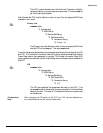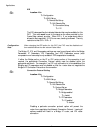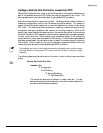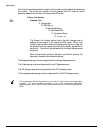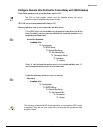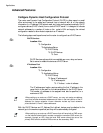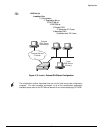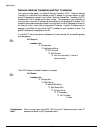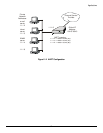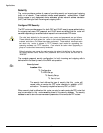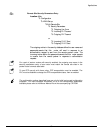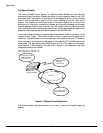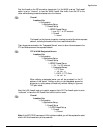
Applications
48
Advanced Features
Configure Dynamic Host Configuration Protocol
The router uses Dynamic Host Configuration Protocol (DHCP) to allow users in a small
office environment to be added and removed from a network with all of the network
information (i.e. IP address, DNS, subnet mask, etc.) being configured automatically. DHCP
configures devices (DHCP clients) from a central DHCP server. It is designed to allocate
network addresses to a number of hosts on the router’s LAN and supply the minimal
configuration needed to allow hosts to operate in an IP network.
The following steps must be performed on the router to configure it as a DHCP server.
DHCP Services
Location: Main
Ä Configuration
ÄApplications Set-up
Ä DHCP Set-up
Ä DHCP Services
Ä Server
DHCP Services options which are available are none, relay and server.
Set to server to enable this device as a DHCP Server.
IP Address Pool
Location: Main
Ä Configuration
Ä Applications Set-up
Ä DHCP Set-up
Ä Server IP address pool
Ä IP address pool
Ä IP Address / number of addresses
The IP address pool option requires setting the first IP address in the
range that is to be used for the devices attached to the DHCP Server.
The number of addresses to be assigned must also be specified, to a
maximum of 253.
When setting up a router as a DHCP server, you may not assign an address
pool that includes broadcast addresses (all ones in the host portion of the IP
address) for known networks. Known networks include any local networks
plus standard A, B and C class addresses.
With the DHCP Services and IP Address Pool defined, devices may be attached to the
network (up to the maximum specified) and they will be automatically configured.
When setting up a router as a DHCP server that will have both a DNS server
on the internal network and a remote connection to another DNS server (for
example, through an ISP), then the local DNS server should be set as the
primary DNS and the external DNS server as the secondary DNS.
7
7



